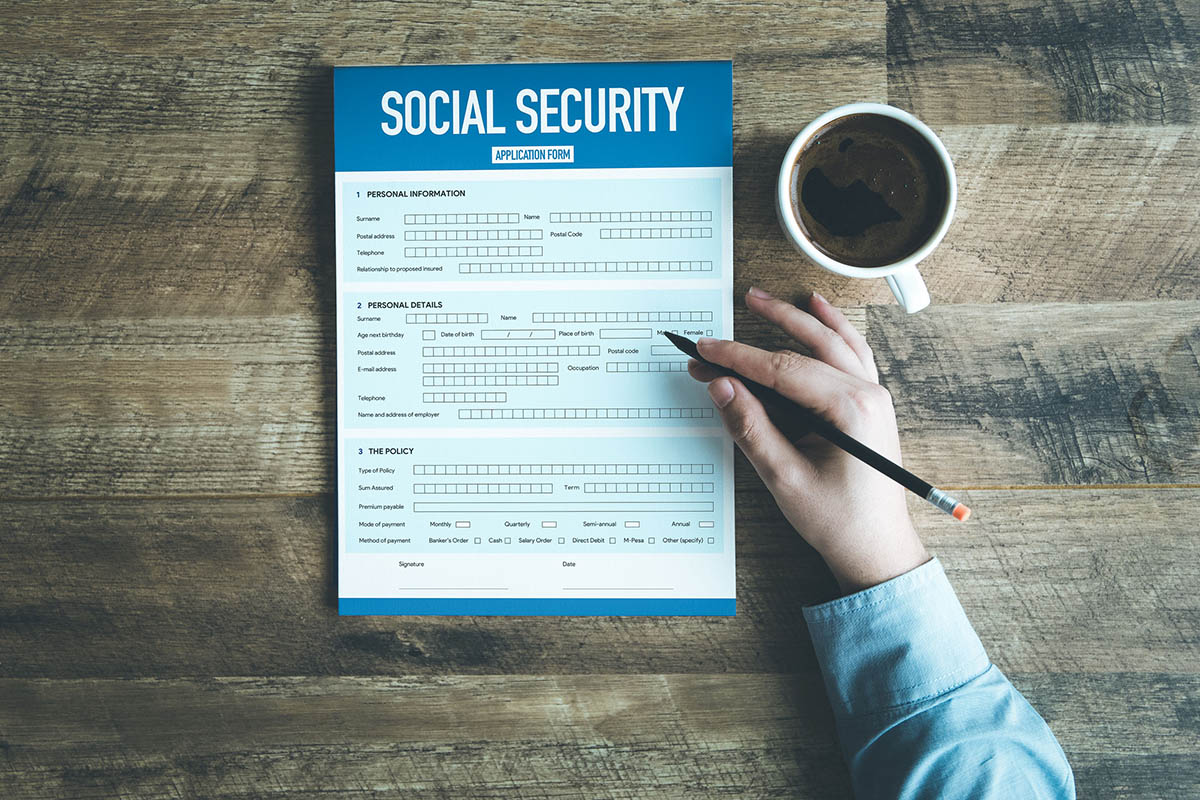Home>Finance>How Much Will My Pension Be Taxed In South Carolina


Finance
How Much Will My Pension Be Taxed In South Carolina
Published: November 27, 2023
Learn about the tax implications for your pension in South Carolina and plan your finances wisely. Find out how much your pension will be taxed in this comprehensive guide.
(Many of the links in this article redirect to a specific reviewed product. Your purchase of these products through affiliate links helps to generate commission for LiveWell, at no extra cost. Learn more)
Table of Contents
- Introduction
- Understanding the South Carolina Pension System
- Types of Pensions in South Carolina
- Taxation of Pensions in South Carolina
- State Income Tax on Pension Income
- Federal Income Tax on Pension Income
- Tax Deductions and Exemptions for Pension Income
- Pension Income Exclusion for Military Retirees
- Additional Taxes and Considerations for Pension Income
- Conclusion
Introduction
Planning for retirement is a crucial step in securing your financial future. One important aspect to consider when strategizing your retirement income is the taxation of your pension. If you are a resident of South Carolina, understanding how your pension will be taxed is essential for effective retirement planning.
In this article, we will delve into the details of pension taxation in South Carolina, exploring the types of pensions available, state and federal income tax implications, deductions and exemptions available, and other important considerations. By the end, you will have a comprehensive understanding of how your pension income may be taxed in the state.
It is important to note that tax laws are subject to change, and individual circumstances may vary. Consult a professional tax advisor for personalized advice regarding your specific situation.
Let’s now dive into the intricacies of the South Carolina pension system and its taxation policies to help you make informed choices for your retirement planning.
Understanding the South Carolina Pension System
The South Carolina pension system provides retirement benefits to eligible employees, including state and local government employees, public school teachers, and law enforcement officers, among others. The State of South Carolina offers various pension plans, including the South Carolina Retirement System (SCRS) and the Police Officers Retirement System (PORS).
The SCRS is a defined benefit plan, which means that the retirement benefit amount is predetermined and based on factors such as years of service and average salary earned during the highest earning years. On the other hand, PORS is designed specifically for law enforcement officers and provides retirement benefits based on a formula that incorporates years of service and average salary.
These pension plans aim to provide retirees with a reliable and consistent source of income during their retirement years. However, it is essential to understand how pension income is taxed in South Carolina to effectively plan for your financial needs post-retirement.
In the following sections, we will explore the taxation implications of different types of pensions in South Carolina, including state and federal income tax considerations, available deductions and exemptions, and additional taxes to be aware of. Understanding these aspects will help you estimate the tax burden on your pension income and make informed decisions to maximize your retirement funds.
Types of Pensions in South Carolina
The state of South Carolina offers different types of pensions to its eligible employees. Understanding the specific type of pension you have is crucial in determining how it will be taxed. Let’s take a closer look at the main types of pensions in South Carolina:
- South Carolina Retirement System (SCRS): The SCRS is a defined benefit plan that covers most state and local government employees. As a member of SCRS, your retirement benefits are calculated based on a formula that considers factors such as your years of service and average salary.
- Police Officers Retirement System (PORS): PORS is designed specifically for law enforcement officers and provides retirement benefits based on a formula that includes years of service and average salary.
- Teacher and Employee Retention Incentive (TERI) Program: The TERI program allows eligible teachers and school employees to continue working while simultaneously receiving retirement benefits. The program provides a bridge between active employment and full retirement.
- Judicial Retirement System (JRS): JRS is a pension plan available to judges and solicitors in South Carolina. It provides retirement benefits based on a formula that factors in years of service and average salary.
- Retiree Health Insurance Trust (RHIT) Program: The RHIT program is not a pension plan, but it is worth mentioning as it provides health insurance coverage to retired state employees.
Understanding the specific pension plan you have is important as it will determine the taxation rules that apply to your retirement income. In the next section, we will explore how pensions are taxed in South Carolina, both at the state and federal level.
Taxation of Pensions in South Carolina
When it comes to taxation, South Carolina follows specific rules regarding pension income. Depending on the type of pension you receive, your pension income may be subject to both state and federal income taxes. Let’s explore the taxation implications of pensions in South Carolina:
State Income Tax on Pension Income: In South Carolina, pension income is generally subject to state income tax. The state follows a progressive income tax system, which means that the tax rates increase as your income level rises. The exact amount of tax you owe on your pension income will depend on your total income and other factors, such as deductions and exemptions that you may qualify for.
Federal Income Tax on Pension Income: Similarly, pension income earned in South Carolina is also subject to federal income tax. The federal tax rates are progressive, just like the state tax rates, meaning that the more you earn, the higher your tax rate will be. However, the federal government offers certain tax deductions and exemptions that can help reduce your overall tax liability.
It is important to note that South Carolina does not tax Social Security benefits in most cases. This can provide some relief for retirees who rely on both pensions and Social Security income during their retirement years.
Now that we understand the basic taxation rules, let’s delve deeper into the specifics of state and federal income taxes on pension income in South Carolina in the following sections.
State Income Tax on Pension Income
In South Carolina, pension income is generally subject to state income tax. The state follows a progressive income tax system, which means that the tax rates increase as your income level rises. The exact amount of tax you owe on your pension income will depend on various factors, including your total income and any deductions or exemptions you may be eligible for.
The state of South Carolina has a tiered income tax system with six tax brackets, ranging from 0% to a maximum of 7%. As of 2021, the income tax brackets for individuals are as follows:
- First $3,070: 0%
- $3,071 – $6,260: 3%
- $6,261 – $17,420: 4%
- $17,421 – $29,620: 5%
- $29,621 – $46,390: 6%
- Over $46,390: 7%
These tax rates apply to your total taxable income, which includes both pension income and any other sources of income you may have, such as wages, investment gains, or rental income. It’s important to note that South Carolina allows certain deductions and exemptions, which can help reduce your overall tax liability.
For individuals aged 65 and older, South Carolina offers a retirement income deduction. This deduction allows eligible individuals to exclude a portion of their qualifying retirement income from their taxable income. For tax year 2021, the retirement income deduction is up to $10,000 per person. If you are married and both you and your spouse are 65 or older, you may be eligible to exclude up to $20,000 of retirement income from your taxable income.
It’s important to be aware that certain income sources may be exempt from South Carolina state income tax. For example, Social Security benefits are generally not subject to state income tax in South Carolina. However, if you have significant income from other sources, such as pensions or investment income, a portion of your Social Security benefits may be subject to federal income tax.
It’s recommended to consult with a tax professional or use tax software to accurately calculate your state income tax liability and determine what deductions or exemptions you may qualify for based on your specific circumstances. By doing so, you can effectively plan for the tax implications of your pension income in South Carolina.
Federal Income Tax on Pension Income
In addition to state income tax, pension income earned in South Carolina is also subject to federal income tax. The federal tax rates are progressive, meaning that the higher your income, the higher your tax rate will be. However, there are certain tax deductions and exemptions that can help reduce your overall tax liability.
When it comes to federal income tax on pension income, the amount you owe will depend on various factors, including your total taxable income, filing status, and any applicable deductions or exemptions.
The IRS classifies pension income as “ordinary income,” which means it is taxed at the ordinary income tax rates. These rates range from 10% to 37% for the tax year 2021, depending on your income level and filing status.
In addition to the standard income tax rates, there are specific provisions that may impact how your pension income is taxed. For example, if a portion of your pension income is from a previously taxed contribution, it may be excluded from your taxable income. This is known as the “recovered tax basis” or “return of capital” portion.
Furthermore, certain qualified retirement plans, such as employer-funded pension plans or individual retirement accounts (IRAs), may allow for tax-deferred growth. This means that the contributions you made to the pension plan and the subsequent investment earnings are not subject to immediate taxation. Instead, they are taxed when you withdraw the funds during retirement.
If you withdraw money from a tax-deferred pension plan, such as a traditional IRA or a 401(k), it will be subject to federal income tax in the year of withdrawal. The tax rate applied will depend on your taxable income for the year and the applicable income tax brackets.
It’s important to note that if you receive Social Security benefits along with your pension income, a portion of your Social Security payments may be subject to federal income tax. The amount subject to taxation will depend on your total taxable income and a specific formula known as the “provisional income” calculation.
To ensure accurate calculation of your federal income tax on pension income, it is advisable to consult with a tax professional or utilize tax software. These resources can help you determine your tax liability and explore any deductions or exemptions you may be eligible for, enabling you to effectively plan for the federal tax implications of your pension income.
Tax Deductions and Exemptions for Pension Income
When it comes to pension income taxation in South Carolina, there are various deductions and exemptions available that can help reduce your overall tax liability. These provisions are designed to provide relief for retirees and ensure they have sufficient income for their post-employment years. Let’s explore some of the tax deductions and exemptions commonly applicable to pension income in South Carolina:
Retirement Income Deduction: South Carolina offers a retirement income deduction for individuals aged 65 and older. This deduction allows eligible retirees to exclude a portion of their qualifying retirement income from their taxable income. For the tax year 2021, the retirement income deduction is up to $10,000 per person. If you are married and both you and your spouse are 65 or older, you may be eligible to exclude up to $20,000 of retirement income from your taxable income.
Social Security Benefits Exclusion: South Carolina does not tax Social Security benefits in most cases. This means that you can potentially exclude all or a portion of your Social Security income from your state taxable income. However, certain exceptions may apply if you have significant income from other sources.
Other Deductions and Exemptions: In addition to the retirement income deduction and Social Security benefits exclusion, South Carolina also offers other deductions and exemptions that can help reduce your overall tax liability. These may include standard deductions, itemized deductions, and exemptions for dependents, if applicable.
It’s important to note that these deductions and exemptions have specific criteria and limitations. The retirement income deduction, for example, requires you to meet certain age requirements, and the amount that can be excluded is subject to annual changes. It is essential to consult with a tax professional or review the South Carolina Department of Revenue guidelines to ensure you meet the eligibility criteria and properly claim the deductions and exemptions you are entitled to.
By taking advantage of these deductions and exemptions, you can effectively reduce the amount of pension income subject to taxation, potentially lowering your overall tax liability and increasing your available retirement funds.
Pension Income Exclusion for Military Retirees
In South Carolina, military retirees enjoy a special pension income exclusion when it comes to state income tax. This exclusion recognizes the sacrifice and service of military personnel and provides a tax benefit specifically tailored for them.
Military retirees who are at least 65 years old are eligible for a tax exclusion of up to $30,000 of their retirement income. This applies to retirement income received from the following sources:
- U.S. Armed Forces retirement pay
- Survivor Benefit Plan (SBP) payments
- Retired or retainer pay from the National Guard or Reserve Forces
It’s important to note that this exclusion is only applicable to military retirees who meet the age requirement and receive retirement income from eligible military sources. Other income sources, such as Social Security benefits or income from non-military retirement plans, may not be included in this exclusion.
Additionally, if you are married and both you and your spouse are at least 65 years old and receiving retirement income, each spouse may be eligible for their own $30,000 exclusion. This means that a military retiree couple could potentially exclude up to $60,000 of their retirement income from South Carolina state income tax.
To claim the pension income exclusion for military retirees, you must meet certain criteria and complete the necessary forms and documentation as specified by the South Carolina Department of Revenue. It is recommended to consult with a tax professional or review the official guidelines to ensure you meet the requirements and properly claim the exclusion.
This exclusion for military retirees in South Carolina provides a significant tax benefit that can help reduce the tax burden on their pension income. By taking advantage of this exclusion, military retirees can enjoy a higher disposable income during their retirement years.
Additional Taxes and Considerations for Pension Income
While state and federal income taxes are the primary taxes to consider when it comes to pension income, there are a few additional taxes and considerations that may impact retirees in South Carolina. Let’s explore these factors:
Medicare Tax: Medicare tax is a payroll tax that helps fund the Medicare health insurance program. As a retiree receiving pension income, you may be subject to the Medicare tax on a portion of your income. The current Medicare tax rate is 1.45% for employees. However, it’s important to note that Medicare tax is not applicable to all pension income sources.
Alternative Minimum Tax (AMT): The Alternative Minimum Tax is a separate tax calculation that ensures individuals with higher incomes pay a minimum level of tax, even if they have deductions and exemptions that would otherwise reduce their tax liability. Although the AMT primarily affects higher-income individuals, it’s worth considering if your pension income, combined with other sources of income or deductions, may trigger AMT liability.
Estate and Inheritance Taxes: In South Carolina, there is no state-level estate tax or inheritance tax. This means that pension income received during your lifetime is not subject to estate or inheritance taxes. However, it’s important to note that federal estate tax may apply if your estate’s total value exceeds the federal exemption threshold.
Cost-of-Living Adjustments (COLAs): Some pension plans offer cost-of-living adjustments (COLAs) to help protect retirees from inflation. COLAs increase pension benefits over time to ensure their purchasing power remains relatively stable. It’s important to consider how COLAs may impact your taxable income, as the increased benefits may push you into higher tax brackets.
Furthermore, it’s essential to consider the overall financial implications of your pension income. Alongside taxes, retirees must budget for living expenses, healthcare costs, and other financial obligations. Proper financial planning and consultation with a financial advisor can help ensure a stable and comfortable retirement.
It’s important to stay updated with tax laws, as they can change over time. Working with a qualified tax professional or utilizing tax software can help you navigate the complexities of pension income taxation and ensure compliance with the latest regulations.
By understanding these additional taxes and considering the various factors that may impact your pension income, you can better plan for your financial future and make informed decisions regarding your retirement funds.
Conclusion
Understanding the taxation of pension income is crucial for effective retirement planning, especially for residents of South Carolina. By familiarizing yourself with the tax laws and provisions that apply to pension income in the state, you can make informed decisions to maximize your retirement funds and minimize your tax liability.
In South Carolina, pension income is subject to both state and federal income taxes. The state follows a progressive income tax system with various tax brackets, while the federal income tax rates are also progressive. It’s essential to consider any deductions, exemptions, and exclusions that may be applicable to your pension income, such as the retirement income deduction, Social Security benefits exclusion, and the pension income exclusion for military retirees.
Additionally, it’s important to be aware of other taxes and considerations that may impact your pension income, such as Medicare tax, Alternative Minimum Tax (AMT), and estate taxes. Planning for these additional taxes can help you better manage your retirement finances.
To ensure accurate tax planning and compliance, it’s advisable to consult with a tax professional or utilize tax software. They can assist you in calculating your tax liability, identifying eligible deductions and exemptions, and navigating any complexities or changes in tax laws.
Ultimately, by understanding the taxation of your pension income and considering the various factors and provisions, you can optimize your retirement funds, maintain financial stability, and enjoy a comfortable retirement in the beautiful state of South Carolina.














